Free delivery on orders over £40, only £3.95 under £40
Free delivery on orders over £40, only £3.95 under £40
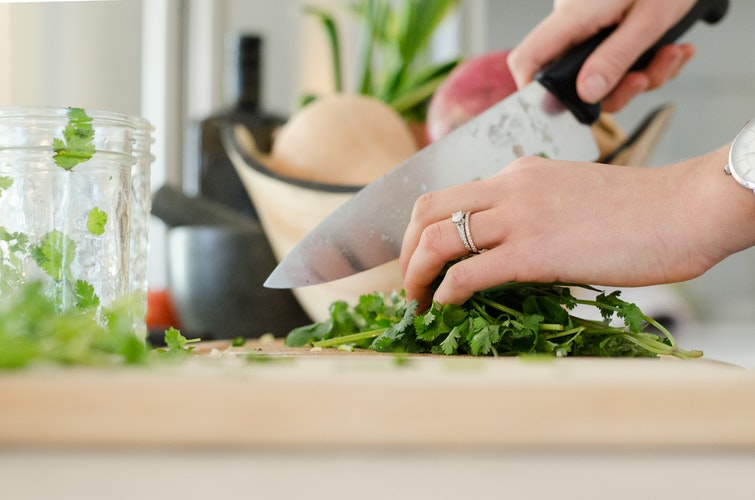
Preparing and eating meals can be made easier for anyone with a disability or age-related health condition by optimising your workspace, tools for cooking and incorporating inclusive dining aids into your current tableware.
Ergonomic cutlery is perfect for tucking in and enjoying your food with ease. Our adaptive cutlery differs from the standard by incorporating features like weighted handles for individuals with tremors, and rubber handles which are easier to maintain a secure grip. If you have limited dexterity in one hand, our curved cutlery is cleverly designed to scoop the food up one-handed and lowers the risk of spills. Reduced grip can cause holding cutlery to be difficult and a dining aid like a utensil strap can make mealtimes easier as it secures the utensil to the users hand and keeps it there until finished. The Knork is a useful piece of cutlery that works like a knife and a fork simultaneously and can be helpful for one-handed eating. Brightly coloured cutlery is perfect for helping to differentiate between the food, plate and the cutlery for users with dementia. Full sets of cutlery can aid independent and inclusive dining for anyone who has difficulty using standard cutlery, with modern designs and hidden features they incorporate easily into any existing cutlery and dining ware.
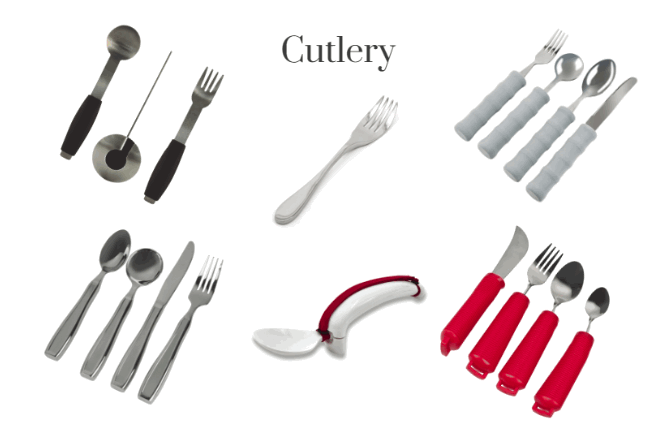
Items like our plate surrounds are ideal for eating one-handed and minimising the risk of spills. If you have less dexterity in one hand, the plate surrounds enable you to push the food onto the cutlery by using the wall of the surround as a guide, without the food falling off the plate. Simply clip the plate surrounds onto a standard plate and they can effortlessly blend into any dining environment without appearing too obtrusive. Our red incurve plate surround is ideal for individuals with dementia, as the bright colour is easy to differentiate from the food and the cutlery, making it easier to eat from. Or you could choose our virtually invisible plate surround if you want a less obvious design.
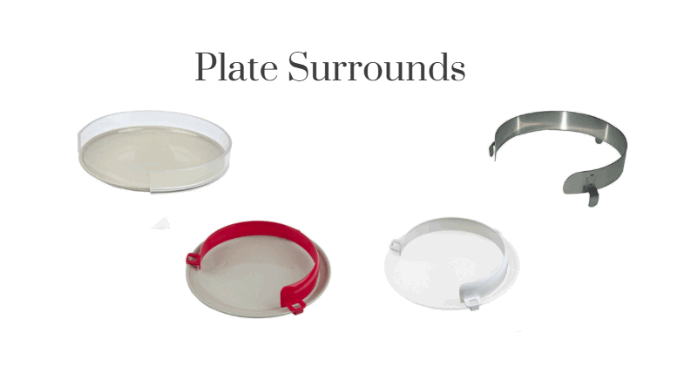
Products shown: Virtually Invisible Plate Surround, Incurve Plate Surround, Stainless Steel Plate Surround, Plate Guard,
Our innovative range of plates and dishes can help with dividing food, preventing spills and even keeping your food warm whilst you take your time enjoying it. Bowls and dishes now include hidden features such as slopes, dividers, non-slip bases and keep-warm inners which can aid dining and keep mealtime independent and inclusive for all at the dinner table. Attractive styles and colours help this specialist crockery blend in with existing plates and bowls.
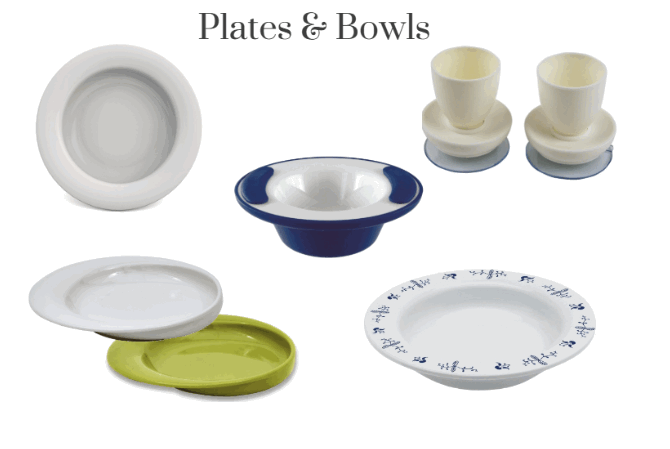
Products shown: Wade dignity plate, keep warm bowl, suction egg cups, and bowl with sloped base.
When it comes to staying hydrated or enjoying a nice cup of tea, it doesn’t mean having to resort to ugly mugs and cups just because you have restricted neck movement or dexterity problems. It’s easy to have modern drinking aids which have special features such as internal cones, two handles or a non-slip grip. Safe sip reusable drinks covers are also a great way to avoid accidental spills, keeping all the contents inside the cup. A range of dignity drinking aids are specially designed to blend in with existing kitchen ware but enable the user to drink comfortably as they have better, comfortable grip, made from a durable material and are designed for people with Alzheimer’s and dementia.
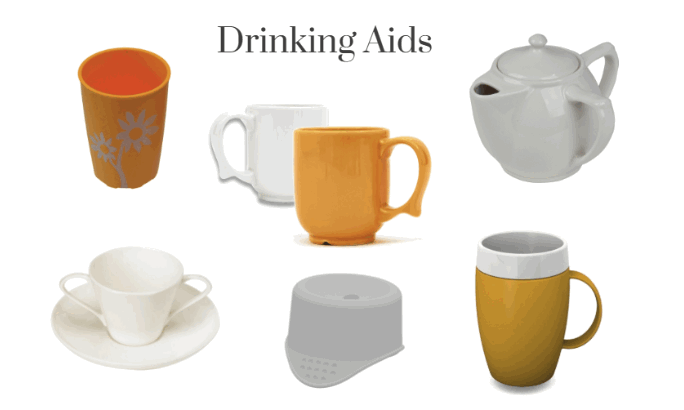
Products shown: Anti-slip cup, two handled cup and saucer, one handled dignity mug, safe-sip reusable drinks cover, two handled tea pot and thermal mug with internal cone.
You can easily create a safe and accessible kitchen environment if you are living with a disability or have age-related health conditions, with the help of kitchen aids, adapted cutlery and diningware. Shop our full range of kitchen aids here